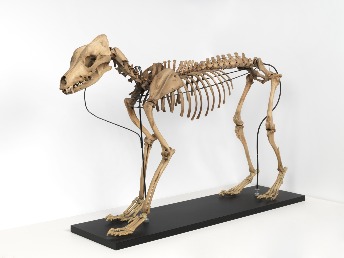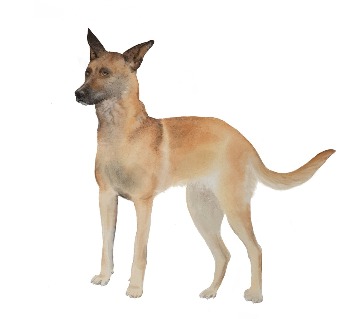The Terpenhond gets a snout
The so-called 'terp dog' from Ferwert has been part of the archaeological collection of the Fries Museum for over a hundred years. For a long time, it remained unknown what the animal looked like and whether it was a male or female. Thanks to research by Dr. Canan Çakirlar, university lecturer in archaeozoology, we now know what the dog looked like.

The remains of the animal—affectionately called "our house dog" by the museum—were discovered in 1910 during the excavation of the Burmania-I terp in Ferwert, Friesland. Remarkably, not only the skeleton but also pieces of its fur were preserved. The skeleton was preserved and mounted, while the fur was stored in a cigar box in the depot.

As part of the 'Fries Museum op Paad' project, Çakirlar reexamined the find. Her analysis shows that it likely belonged to a large female dog with medium-length hair that lived in the fifth or early sixth century AD. The animal had a long snout, a broad skull, powerful jaws, and noticeably large canines. It was smaller in size than a large Turkish Kangal, but resembled a German or Dutch Shepherd. Based on the skeleton and the research report, archaeologist and artist Nikky Kruithof created an artist's impression of the animal. The reconstruction has been on display in the permanent exhibition of the Fries Museum since 2025
More news
-
13 January 2026
Doing good in complex situations
-
07 January 2026
How music is helping to revive the Gronings dialect
